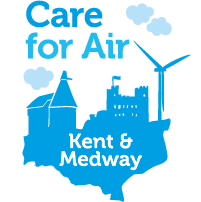About Climate Change
Throughout Earth's history, the climate has always been changing. These changes have been due to natural causes such as huge volcanic eruptions releasing large volumes of dust in to the atmosphere which reduced sunlight reaching the Earth's surface and causing the climate to become cooler.
What causes climate change?
 Since about 1950, global temperatures have been increasing. This increase is generally thought to be caused by human activity. Human activities such as burning fossil fuels, as well as causing air pollution, also release 'greenhouse gases' in to the atmosphere.
Since about 1950, global temperatures have been increasing. This increase is generally thought to be caused by human activity. Human activities such as burning fossil fuels, as well as causing air pollution, also release 'greenhouse gases' in to the atmosphere.
Greenhouse gases which come from human activities include carbon cioxide (CO2), methane (CH4) and nitrous oxide (N2O).
Greenhouse gases are vital to life on earth as they act as a blanket around the earth trapping heat in the atmosphere; this is known as the 'greenhouse effect'. However, human activities which emit greenhouse gases are adding to this blanket causing more heat to be trapped leading to increased global temperatures; this is known as the 'enhanced greenhouse effect'.
Some people believe that current changes to our climate are natural and are not caused by human activity; however, it is now the consensus among scientists that humans are the main cause of recent climatic changes.
What are the sources of greenhouse gases?
The sources of greenhouse gases are often the same as the sources of air pollution.
- Energy generation. Fossil fuels are fuels produced in the earth from the decomposition of living things. The burning of fuels is one of the main sources of CO2. Fossil fuels are burnt in power station to produce electricity.
- Transport. Cars, buses, aeroplanes and ships all burn fuel to power them; this burning of fuel releases CO2 into the atmosphere. Transport is an important source of emissions in Kent; just think about all those ships and ferries coming and going from the ports such as Dover!
- Industrial activities. Industrial processes, such as iron and steel refineries, release large amounts of gases and particles including CO2 into the atmosphere.
- Waste. In the UK, waste disposal is the largest emitter of methane which is released into the atmosphere when waste decomposes.
- Agriculture. Animals like cows and sheep release a massive amount of methane through belching and breaking wind! Methane is produced in their stomachs when bacteria break down the food that they eat. Nitrous oxide (N2O) is also released when fertilisers are added to soils to help crops grow.
- Deforestation. Deforestation is when trees are cut down. Trees absorb CO2 out of the air and release oxygen. Cutting down trees means less CO2 will be absorbed leaving higher concentrations of CO2 in the atmosphere.
What are the impacts of climate change?
Throughout the world, the effects of climate change will be different; different climates will change in different ways. The impacts of climate change will become more severe over time.
General effects include higher temperatures, more droughts, weather events which are more frequent and severe, melting of glaciers and ice sheets/caps and rising sea levels.
The impacts that Kent are likely to experience are warmer temperatures, less rainfall, higher sea levels and more frequent and intense storms and flooding.
A summary of how climate change can affect many things that change our lives is show below:
Agriculture
- Crops could be destroyed by flooding when in low lying areas
- Agricultural land on the edge of deserts may become unusable (through desertification)
- Major crop yields are expected to decrease
- Food prices likely to increase as supply is affected
- In the UK the season where growing crops is possible may increase
Water
- There may be more locations that suffer water shortages
- Glacial melt will increase
- Economies that rely on skiing may be affected economically through lack of snow
Population
- Likely population migration from areas of drought or flooding
- With population increases and the cost of food increasing this could cause more famines
- More people are likely to be affected by coastal flooding as a result
Changes in sea level
- Sea defenses may be needed more
- Coastal and low-lying land and settlements may be threatened by sea and river level rises (especially land on deltas)
